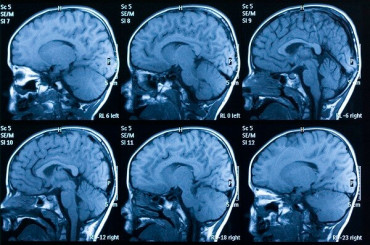Why Does My Child Have Confusion After Surgery?

Anytime a child undergoes a medical procedure where anesthesia is used, there is a certain element of risk. Parents are usually warned of this before going into the surgery.You may have seen theviral internet video “David After Dentist” where a boy says all kinds of crazy things after a dental procedure. He’s clearly experiencing a bit of confusion as a result of the anesthesia. Although this video is a funny example of what can happen, truly waking up with confusion after a surgical procedure might be a serious situation. It can be the result of damage known as anoxia or hypoxia caused by a doctor's error. In some extreme cases, the child can actually die due to the complications.
What Are Anoxia And Hypoxia?
Anoxia is where damage occurs due to lack of oxygen to the brain during a procedure. Hypoxia is low oxygen going to the brain. Obviously, the difference is that anoxia can be more serious, though both can cause traumatic brain injury in a very young patient. The brain itself will begin to die after as little as four minutes of low or zero oxygen levels. Some of these cases lead the patient into a coma or even death.
How Could Anesthesia Lead To Anoxia Or Hypoxia?
Because anesthesia puts the body into a very deep state of sedation, most patients need oxygenation to ensure that they continue to receive the amount of oxygen they need. Typically, anesthesiologists are responsible for monitoring patients’ breathing and oxygen levels. If they fail to do so, it can lead to hypoxia or anoxia and be considered medical malpractice.
Anesthesia-caused brain damage is nearly always preventable. A momentary lapse in focus by an anesthesiologist can result in oxygen deprivation, which can cause brain damage. Even if the patient survives, they may face long-term health consequences and a lower quality of life.
I Think My Child Suffered A Brain Injury Due To Anesthesia. What Do I Do Now?
It’s normal for a child to feel drowsy, have a headache, or be slightly confused after having surgery that included a general anesthetic. The symptoms can sometimes continue for a few days or even weeks after an operation. This doesn’t mean that brain damage has occurred. However, if your child has experienced any of the following, brain damage may be the cause:
- Slurred speech or difficulty speaking
- Severe or prolonged headaches
- Abnormal pupil dilation
- Loss of balance or coordination
- Weakness in extremities
- Prolonged or extreme confusion
- Aggressive behavior
- Seizures
It can be difficult to determine if an injury such as brain damage is due to an error or negligence on the part of the anesthetist or if it’s just an unfortunate, unavoidable, and unpredictable negative outcome after surgery. The process for proving negligence in cases like this can be quite involved, and it can be difficult to uncover the truth. If you’ve been left with doubts about the cause of your child’s brain injury, don’t delay in seeking help to get the justice you and your family deserve.
Why Choose Ross Feller Casey In Pennsylvania?
The experienced team of attorneys at Ross Feller Casey has a proven track record of winning medical malpractice cases. Over the past five years alone, we’ve recovered more than $1 billion for our clients, including more than 50 $10-million-plus recoveries. Our team of doctor-lawyers, who are right on staff, knows how complicated medical malpractice cases can be and what a brain damage diagnosis can mean for your family’s future.
We understand that you’ve been through enough, and we strive to ensure that your family gets the compensation and justice you deserve. Consultations are always free, and you don’t owe us a thing unless we win your case. If you or your family has been affected by an anesthesia-related brain injury, don’t delay. Contact our office today.
Disclaimer: Ross Feller Casey, LLP provides legal advice only after an attorney-client relationship is formed. Our website is an introduction to the firm and does not create a relationship between our attorneys and clients. An attorney-client relationship is formed only after a written agreement is signed by the client and the firm. Because every case is unique, the description of awards and summary of cases successfully handled are not intended to imply or guarantee that same success in other cases. Ross Feller Casey, LLP represents catastrophically injured persons and their families in injury and wrongful death cases, providing legal representation in Pennsylvania and New Jersey.





